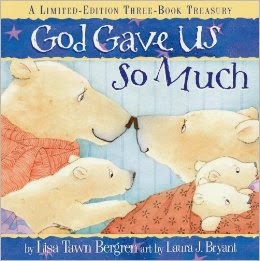My Thoughts on Rob Bell’s Love Wins, Chapter 5: Dying to Live
Chapter five begins very oddly . . . with Eminem. I guess when an author plays fast and loose with Scripture, references to pop culture to prove one’s point shouldn’t be all that surprising. Bell recalls that around 2005, Eminem disappeared off of the public radar. His comeback tour began in 2010 in his native Detroit and Rob Bell was there (I will resist the urge to comment on the incongruity of a minister at an Eminem concert). Perhaps it was the intoxication of being in a place packed with 40,000 fans but Bell was taken in by the image on the big screen of Eminem wearing . . . wait for it . . . a cross! I guess you know where this is going.
He then writes at some length on the ubiquitous nature of the cross in modern culture. It is everywhere. Then reminiscent of his Gandhi in hell comments earlier, Bell theorizes that perhaps Eminem found out something (p. 136). I guess this something is the Bell version of an epiphany or a salvation experience.
“Did Eminem stumble upon this truth? Did he, somewhere in his addiction and despair and pain, hit bottom hard enough that something died – the old, the hard, that which could never bring life in the first place? Did he stumble into that truth that is as old as the universe – that life comes through death? Did he in some strange way die, and that’s why he’s back? Is that why he wore a cross around his neck? Because we all want new life? We want to know that the last word hasn’t been spoken, we want to know that the universe is on our side (Love Wins, p. 136-138 Kindle).”
Did that last phrase bother you as much as it did me?
The author writes a couple of pages about the nature of sacrifices. What surprised me was that he didn’t speak about “the only God that ever mattered” until after a lengthy banter about pleasing the gods through sacrifices. As I read, I was left wondering, until then, if Bell believed that the sacrifices, even of the Israelites, were the equivalent of sacrifices to false gods. I was grateful for the eventual mention.
Predictably, he then quotes from several passages, always out of context from its immediate setting and the overall setting of Scripture, as proof texts that God is going to save everybody. The list of passages include unnamed verses from the following: Colossians 1, 1 Corinthians 15, Titus 2, Romans 5, John 1 and 1 John 2. I wonder why the aversion to naming the verses? Perhaps because he feels his target audience would get lost in the details? Or maybe, that those who read and believe what he writes wouldn’t care to act as the Bereans and search the Scriptures to see if what their leader was saying Scripture teaches was true (see Acts 17:10-12)? That, more than anything else, may be what empowers people like Bell to have such a large following.
In the middle of this chapter is Bell’s reflection on the “signs” recorded in the Gospel of John. After noting that John brings the reader’s attention to the first and then to the second one, he asks why is it that John numbers them. He then posits the theory, as if it were fact, that John listed eight signs, if you take his hint and count the rest of them (and see the same ones as Bell sees, no more, no less) and then compare it to Creation week and then wonder with him about that eighth day. Why that’s the beginning of a new week (p. 131-134). John wanted to show us God’s plan for all of Creation, to make it new! To which I would say, I don’t think so, Rob Bell.
He also says it is making the Gospel “small” to believe that Jesus only died and rose again for human beings when to Bell, He died and rose again for all of Creation. Man is the crown of God’s Creation. Humanity was made in the image of God (Gen. 1:26). Jesus came to die for the sins of the world’s people (John 3:14-21, 36). Trees don’t sin. Grass doesn’t sin. Lakes, rivers, mountains and clouds don’t sin. There’s nothing small about God’s great plan of salvation.
Does Creation benefit? Absolutely! Just as Creation suffered under the weight of sin and the curse placed upon the Creation due to the fall of man (Romans 8:21-23), so too, Creation will benefit from God’s redemption of man. However, Bell needs to realize it is a new heaven, a new earth and a new Jerusalem that are in view for eternity, not a renovated old one (2 Peter 3:10-14; Rev. 21).
The Great Commission isn’t to pick up trash or to picket polluters or to stop global warming. The Great Commission is to spread the good news that though human beings are sinners and in danger of God’s judgment for that sin, God, who is love, sent His Son to die for them so that they can be blessed instead of cursed and go to heaven instead of hell (John 3; Rom. 3:10-26; 6:23; Mt. 28:18-20). This writer would like to see Bell love the physical world a little less and the people of the world a whole lot more, especially in respect to what the Bible teaches about judgment to come. While his heart for the poor and oppressed is commendable, the Great Commission must be our focus even as we seek to be light in this world and help those less blessed than us.


Comments
Post a Comment